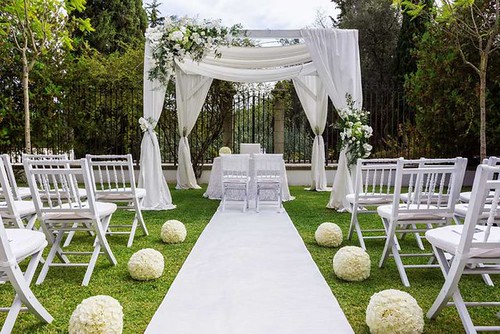Planning a wedding can be an exciting but overwhelming process, and it’s common for couples to experience burnout along the way. Let’s dive into some expert tips and strategies to help you navigate the stress and find joy in the journey of planning your big day.
Understanding Wedding Planning Burnout
Before we dive into solutions, it’s crucial to understand what wedding planning burnout looks like. Common symptoms include feeling constantly stressed, overwhelmed, or anxious about the details of your wedding. You might find yourself snapping at your partner over minor issues or losing sleep over seating arrangements. Recognizing these signs early can help you take proactive steps to manage them effectively.
Set Realistic Expectations
Embrace Imperfection
One of the main culprits of burnout is setting unrealistic expectations. We all dream of a flawless wedding day, but the truth is, perfection is a myth. Embrace the idea that some things might not go as planned. For example, if it rains on your outdoor ceremony, think of it as a chance for intimate, cozy photos under umbrellas instead of a disaster. A friend of mine once had her outdoor wedding disrupted by a sudden storm. Instead of letting it ruin the day, she and her guests danced barefoot in the rain, creating a memorable and unique experience.
Budget Wisely
Setting a realistic budget can alleviate a lot of stress. Sit down with your partner and decide what aspects of the wedding are most important to both of you. Allocate funds accordingly, and remember, it’s perfectly okay to say no to things that don’t fit into your budget. For instance, if you’re not a cake person, consider alternative desserts that might be more cost-effective and personal. One couple I know opted for a donut tower instead of a traditional cake, which was a hit with their guests and saved them hundreds of dollars.
Take Regular Breaks
Self-Care Rituals
Engaging in regular self-care is non-negotiable. Set aside a specific day each week that’s entirely wedding-free. Use this time to do something you love, whether it’s reading a book, watching a movie, or enjoying a hobby. A friend of mine, Sarah, scheduled a weekly pottery class during her wedding planning. Not only did it provide a creative outlet, but she also ended up making personalized favors for her guests. Additionally, consider incorporating daily self-care practices like a morning yoga routine or evening bubble baths to unwind.
Mini Getaways
Consider planning a short weekend getaway with your partner. This break from the planning can help you both reconnect and remember why you’re doing this in the first place. A simple camping trip or a stay at a local bed and breakfast can work wonders in refreshing your perspective. During one of these getaways, a couple I know rediscovered their love for hiking and decided to incorporate nature-themed elements into their wedding, making it even more personal and meaningful.
Delegate Tasks
Involve Loved Ones
It’s a common misconception that you need to handle every detail yourself. Instead, think of wedding planning as a team effort. Create a list of tasks and assign them to willing family members and friends. For example, your artistic friend might enjoy creating the wedding invitations, while a detail-oriented family member could manage RSVPs. Don’t hesitate to lean on your support network; people are often more than willing to help.
Hire Professionals
If your budget allows, hiring a wedding planner can be a game-changer. They bring expertise and a network of trusted vendors, which can save you a lot of time and stress. Many planners offer partial services, so even if you can’t afford full-service planning, a day-of coordinator might be a worthwhile investment. I once worked with a couple who hired a planner for just the final month leading up to the wedding. This allowed them to focus on enjoying the last-minute preparations without getting bogged down in logistics.
Practice Mindfulness
Mindful Moments
Incorporate mindfulness into your daily routine. Begin each morning with a few minutes of deep breathing or meditation to set a calm tone for the day. Apps like Headspace or Calm offer guided sessions that can be particularly helpful. Additionally, consider practicing mindfulness throughout your day by taking mindful walks or simply pausing to appreciate the beauty around you.
Gratitude Journaling
Consider keeping a gratitude journal specifically for wedding planning. Each day, jot down three things you’re grateful for. This practice helps shift your focus from stress to appreciation and can significantly improve your mood and outlook. This is a technique I recommend to many of my clients, and they often find that it not only reduces stress but also enhances their overall wedding experience.
Seek Professional Help
Therapeutic Support
If you find the stress of wedding planning overwhelming, seeking help from a therapist or counselor can be invaluable. They can offer tools to manage anxiety and maintain a healthy perspective. Remember, your mental health is as important as any other aspect of your wedding. A couple I worked with attended pre-marital counseling, which not only helped with wedding stress but also strengthened their relationship.
Support Groups
Joining a support group for brides or grooms can also be beneficial. Sharing experiences with others going through the same process can provide comfort and practical advice. Online forums, like those on The Knot or WeddingWire, offer communities where you can vent, ask questions, and find solidarity. I’ve seen many brides form lasting friendships through these online communities, providing support long after the wedding day.
Remember the Purpose
Focus on the Relationship
Amidst the logistics and details, it’s easy to lose sight of the true purpose behind it all—celebrating your love and commitment to your partner. Regularly remind each other of the reasons you fell in love and the life you’re building together. Some couples find it helpful to plan regular date nights where wedding talk is off-limits, allowing them to focus solely on their relationship. This practice can be a grounding experience, bringing you both back to the core of what your wedding day is truly about.
Personal Vows
Consider writing personal vows. This exercise can be a beautiful reminder of your journey together and the commitment you’re about to make. Even if you don’t share them during the ceremony, the process of writing them can reinforce your bond. A client of mine wrote their vows months in advance and revisited them regularly, which helped keep their focus on the love they were celebrating rather than the stress of planning.
New Perspectives on Wedding Planning
Alternative Celebrations
If traditional planning feels overwhelming, explore alternative wedding formats. Intimate elopements, backyard ceremonies, or destination weddings can offer a more relaxed approach. My cousin opted for a small beach ceremony with just immediate family, followed by a larger celebration later. This allowed them to enjoy their special day without the pressure of a large gathering. Consider what suits your personalities and relationship best, rather than adhering strictly to tradition.
Sustainability Focus
Another way to add meaning and reduce stress is by focusing on sustainability. Choose eco-friendly vendors, limit waste, and consider renting attire instead of buying. Not only does this approach lessen your environmental impact, but it can also simplify decision-making by narrowing down options. A couple I know prioritized sustainability and found it deeply rewarding to know their wedding aligned with their values.
Additional Practical Tips
Create a Detailed Timeline
A comprehensive timeline can help you stay organized and reduce last-minute stress. Break down tasks month-by-month, and check off items as you go. This visual progress can be incredibly satisfying and reassuring. I recommend using digital tools like Trello or Asana to keep track of tasks and deadlines, which can be easily shared with your partner and wedding party.
Emergency Kit
Prepare an emergency kit for the day of the wedding. Include items like safety pins, stain remover wipes, and a small sewing kit. Knowing you’re prepared for minor mishaps can ease your mind and help you focus on enjoying the day. I’ve seen a well-prepared emergency kit save the day more than once, turning potential disasters into minor hiccups.
Common Pitfalls and How to Avoid Them
Over-Analyzing Decisions
It’s easy to fall into the trap of over-analyzing every decision. Trust your instincts and remember that your guests are there to celebrate you, not judge your choices. Avoid endless second-guessing by setting deadlines for decisions and sticking to them. I once worked with a bride who set a firm deadline for each major decision, which helped her move forward with confidence and reduced unnecessary stress.
Neglecting Your Partner
Amidst the hustle, it’s easy to neglect your partner. Make it a point to involve them in the planning process and value their input. Regularly check in with each other to ensure you’re both feeling supported and excited. This shared experience can strengthen your relationship and enhance the joy of your wedding day.
Ultimately, wedding planning should be a joyful journey, not a source of dread. By setting realistic expectations, taking breaks, delegating tasks, and maintaining perspective, you can navigate the process with grace and excitement. Remember, this is about celebrating your love story, and every choice you make should reflect that. Enjoy the ride, and here’s to a beautiful beginning!






